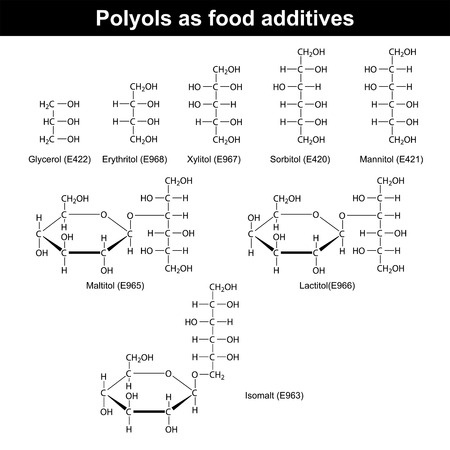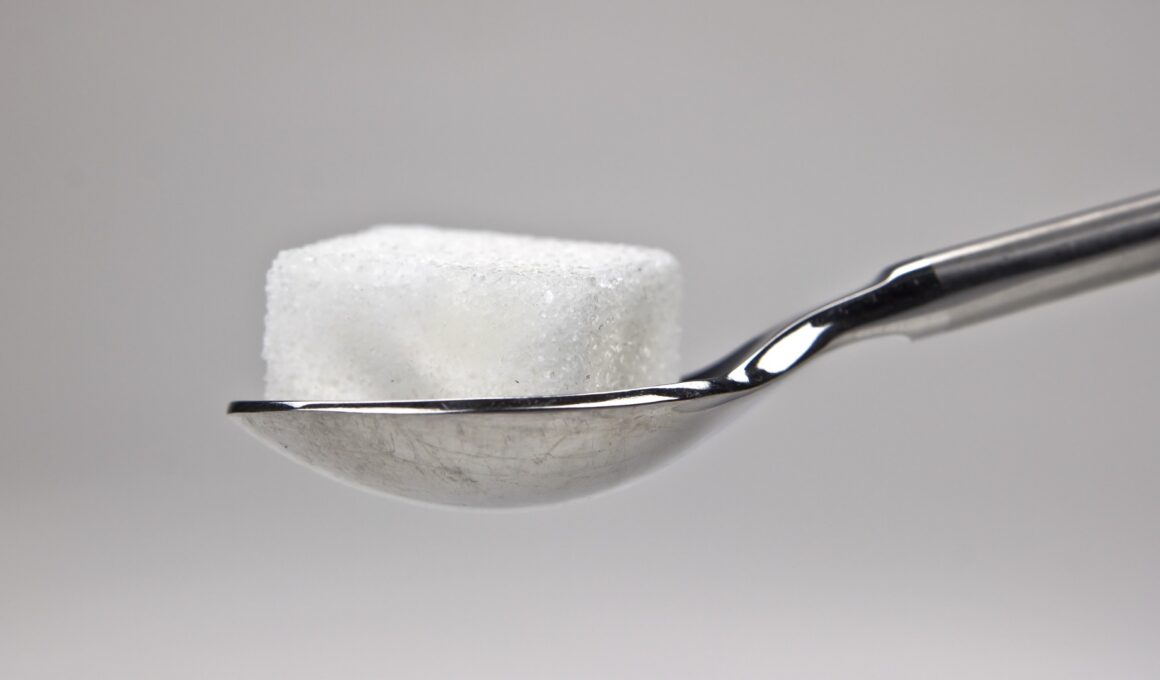Forget the space race, today the big money is likely to go to the first company to crack the ‘sugar race’. Sugar is widely considered one of the most unhealthy aspects of today’s diet and as such, everyone is rushing to try and find a suitable alternative. There’s Stevia, there’s Splenda, there’s palm sugar, there’s honey… and the list goes on.
Xylitol is just one more contender. So how does it stack up?
What Is Xylitol?
Xylitol looks and tastes a lot like sugar, which is kind of the whole point for any sugar alternative. However, the key difference here is that xylitol contains considerably fewer calories and doesn’t spike the blood sugar in quite the same way as sugar. What’s more, it may actually improve dental health (quite contrary to regular sugar) and could have some other health benefits too.

Xylitol is what is known as a ‘sugar alcohol’ or polyalcohol. This is a hybrid molecule between alcohol and sugar – two of the most unhealthy things in the world. However, in practice it doesn’t share all that much in common with either. Specifically, it contains 40% fewer calories than sugar and no, it doesn’t make you drunk. Technically, while xylitol is a carb, it has a very low glycemic index and thus does not spike the blood sugar or insulin. It also contains zero fructose.
Suspicious yet? Good! Just like every other sugar alternative, xylitol is not a perfect solution and still has some important considerations before you start piling it on your cereal.
How it’s Made
While it sounds like a very synthetic compound and possibly like something out of the X-files, xylitol is actually found in a number of fruits and vegetables naturally. And actually, humans produce a small amount of it themselves.
Today it is found in sugar-free products such as chewing gum, candies, oral care products and some diabetic foods. Xylitol is processed from trees such as birch and can also be made via an industrial process that converts the plant fiber xylan into xylitol.
Health Benefits
The obvious health benefits of xylitol are its low glycemic index, lower calorie count and lack of fructose. All of this means that it has only a mild effect on sugar and insulin which in turn makes it suitable for dieters (1).
While sugar has a glycemic index of 60-70, xylitol’s is a much lower 7. This also makes it a good choice for those with diabetes or pre-diabetes. In fact, in some rat studies, it has been shown to be helpful in combating diabetes and reducing belly fat (2).
As mentioned, xylitol may also be good for improving oral health. This is because plaque comes from a type of bacteria called streptococcus mutans which feeds off of sugar. By replacing sugar with xylitol, you can thereby starve the harmful bacteria and reduce the incidence of both plaque and tooth decay. This is what makes it a popular ingredient in gum.
Additionally, xylitol also appears to aid the absorption of calcium, thus strengthening the teeth and combating osteoporosis. It also increases the production of saliva, which contains enzymes such as bromelain and can even lower the acidity of saliva to combat acid-driven degeneration of the tooth enamel.
Other benefits of xylitol include a reduction in ear infections and defense against the yeast candida albicans. It may boost collagen to help improve the firmness of skin and connective tissues.
Side Effects and Risks
As mentioned though, no sugar replacement is entirely without its problems just yet.
One issue is that xylitol is actually very harmful to dogs. When dogs consume xylitol, their systems treat it like glucose and respond by producing insulin. This in turn causes a sudden dip in blood sugar leading to hypoglycemia – and in a dog’s smaller body this could mean a stick of gum would be lethal for something like a Chihuahua. If you chew dental gum then make sure that your pup doesn’t find it lying around!
This may set off alarm bells and there are concerns that larger quantities could also be damaging to humans. For instance, in larger amounts xylitol can lead to diarrhea and intestinal gas and this is worse when it is introduced suddenly into the diet. Some people struggle more than others to tolerate xylitol and this can make it unsuitable in those cases. When consumed in extremely high doses for very long periods of time (more than three years), xylitol is also linked with the formation of tumors.
There is still research to be done into the effects of xylitol and especially the effects that it may have on pregnant women and infants during breastfeeding. As such, the general advice here is to stay away from it during these times.
This shouldn’t cause too much cause for concern however. In one study it was found that subjects could consume 1.5kg of xylitol per month (over 400 grams daily) with no negative effects (3).
The Bottom Line
All in all then, what can we say about xylitol?
As far as sugar replacements go, this is actually one of the better ones owing to its similarity to sugar, as well as its low glycemic index and benefits for oral health.
That said though, it still isn’t perfect. It is highly dangerous for dogs and may not be suitable for women during pregnancy or breastfeeding. Some people may find it causes gas and bloating and there are mild concerns linked to excessive, long-term use.
So don’t go wild with it, but you can enjoy your sugar-free gum guilt free.




